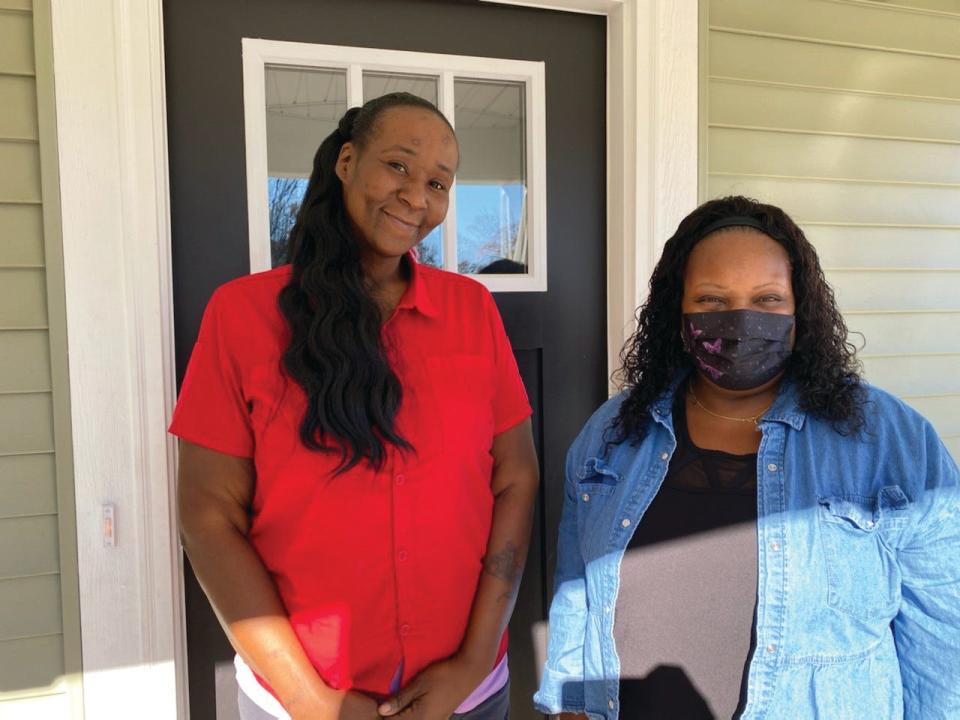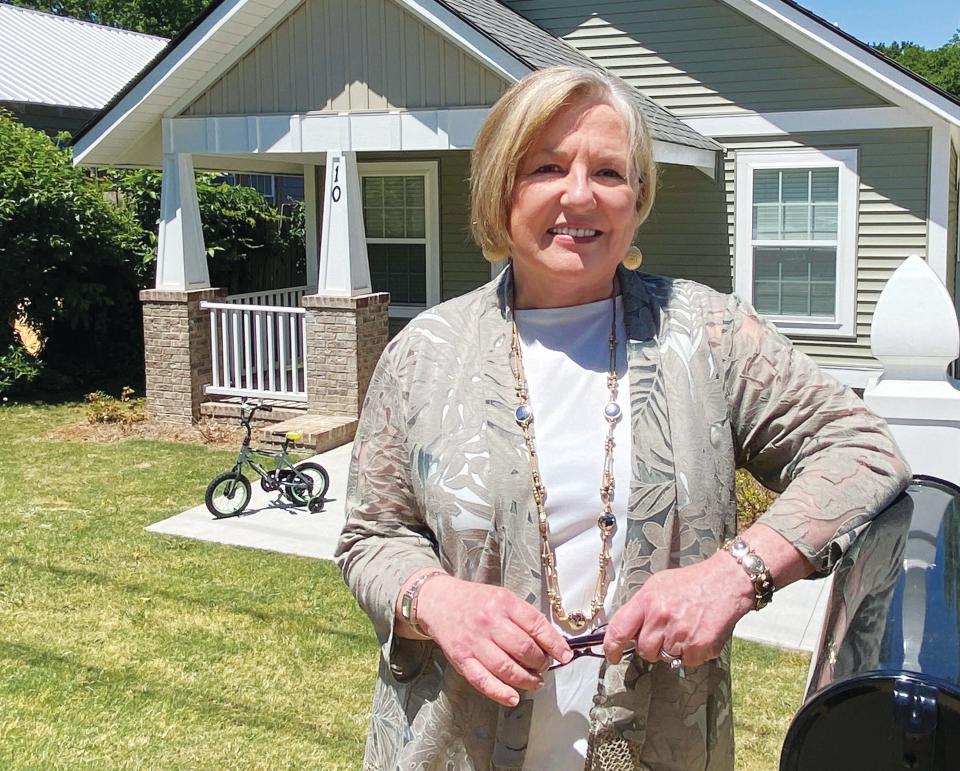For hundreds of clients, UHC aims to make homelessness 'brief, rare and non-recurring'
The single mom of two was getting by – working and sharing an apartment with a friend – when the friend ran afoul of the landlord, and they were all evicted.
Ilena Lee and her 3- and 6-year-old boys were left homeless.
For five months, Lee and her children slept on friends’ couches. With an eviction on her record and little income, she couldn’t find a new apartment.
Eventually, she reached out to her child’s school, which connected her to United Housing Connections in Greenville.
Today, Lee lives in a clean, safe bungalow. Her boys sleep in their own rooms.

“I made my kids a promise that we would never sleep on nobody else’s couch again,” Lee says in a video on UHC’s website. “I never thought I’d be able to get a place to live.”
United Housing Connection receives 50 calls a day from people like Lee, according to its 2021 annual report. Almost all callers are experiencing housing insecurity or cannot find an affordable place to live.
“Our job … is to create a strategic plan to end homelessness. And ending homelessness, for us, is defined as making it brief, rare and non-recurring,” says Lorain Crowl, Chief Executive Officer of UHC.
Greenville County has services and networks for people in need.
“But we have issues. We have a big problem to solve -- and most of it is affordable housing,” Crowl says.
“We have developers coming from all over the country. They're here to make money. I'm not saying that they shouldn't. I'm saying that it is creating a situation where our low-income families have no resources and no housing.”
Crowl says the situation has gone beyond the gentrification of single-family homes.
“Now, they’re buying up multifamily complexes and kicking people out to make market rate.”
Greenville is on dozens of lists that sing its praises. Southern Living magazine recently named Greenville one of the “South’s Best Cities On The Rise,” according to VisitGreenvilleSC.
“We're on every list in the country about being a lovely place to live,” Crowl says. “Monthly rent of $2,500 is very low for downtown Greenville. It's the price we pay for growth. You can't find anything that is affordable anywhere close to downtown.”
The cost of rental housing has increased by much as 35%, according to the annual report. But UHC’s staff of 44 and its partner organizations are undeterred.
In 2021, UHC helped 547 adults and 288 children. It owns or manages 460 units of affordable housing – single-family homes and units in multiple-family housing – for qualifying individuals and families who may be veterans, senior citizens, disabled, living with HIV/AIDS or survivors of domestic violence.
“We run through every single aspect of housing insecurity to try to find solutions and meet needs,” Crowl says.
UHC is funded primarily by federal, state and local governments.
“We are entrusted with taxpayer money,” Crowl says. “So it’s important to do everything we can to use it wisely.”
Now in its 25th year, UHC serves the diverse homeless population in 13 counties. Greenville is home base.
“We are the lead agency for what's called the Continuum of Care, which is a HUD-established program through legislation called The McKinney-Vento Homeless Assistance Act that charges every community to create a system that makes homelessness brief, rare and non-recurring,” Crowl explains.

HUD directs its administrators to not only help those who are “absolutely homeless,” but also to “go upstream to stop the flood of people coming into homelessness.”
A program called Home Again works with families, particularly single parents with children in school.
Just as counselors worked with Lee, who was able to move to her own home in 2021, those counselors work with families to create savings accounts, repair their credit and pay debt.
“We homeowners earn equity in our homes every time we make a payment. Every time our family adds equity to their lives, we match them with an equity fund,” Crowl says.
“As they build their lives back, they are seeing the reward for that effort.”
Other clients are chronically homeless. For them, UHC offers Permanent Supportive Housing.
“They can't afford an apartment that is $700 or $800 a month,” Crowl says.
UHC owns and manages the 23-unit Reedy Place and is building a 36-unit facility called Church Street Place.
Chronically homeless people may have mental illnesses, substance abuse issues or disabilities. They are offered support services, monitoring, and housing with security, rules and a controlled entrance.
UHC also practices outreach. “We have a team in downtown Greenville, Monday through Friday, that literally touches homeless people on the streets to say, ‘We're here to offer you support services and a bed when we have one,’” she says.
The organization works with city administrations, police departments, the judicial system, the penal system and organizations to keep the homeless out of jail.
“Every time one of our homeless friends goes to jail, they have a charge, and that keeps them from getting housing. It's a vicious circle,” Crowl says.
“Our team is vetting people for our shelter program, our 30/60/90 program. We take people off the street and into treatment, whether it's mental health treatment or substance abuse treatment. Once they are stable, we move them to a transitional unit with a house manager.”
Crowl was drawn into working with people-helping organizations more than 30 years ago, after her sister died waiting for a liver transplant. Her first project was working to establish a state donor registry.
“When my sister died, I decided that I wasn’t going to do anything in my life that doesn't matter," Crowl says.
Five years ago, she became CEO of United Housing Connections.
“It's been a pleasure. It's the hardest job I've ever had. I love to solve problems. That's where I get my energy. And there are plenty of problems,” she says.
She wants people to know they will be welcomed if they choose to join UHC.
“We have a system that we have worked hard to build, and if anyone would like to plug in at any point, we'd love for them to do that.”
This article originally appeared on Greenville News: UHC aims to make homelessness "brief, rare and non-recurring"
